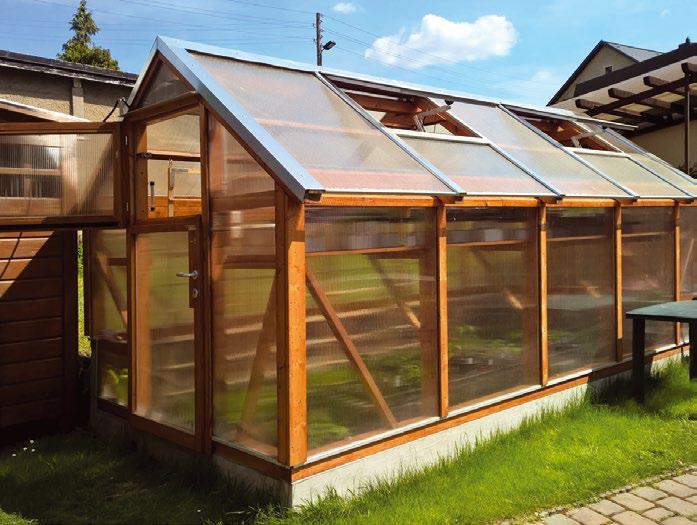Denemek ALTIN - Özgür
MakerSpace Manage your greenhouse with a Raspberry Pi Pico W Sheltered Growth
Linux Magazine
|#274/August 2023: The Best of Small Distros
You can safely assign some greenhouse tasks to a Raspberry Pi Pico W, such as controlling ventilation, automating a heater, and opening and closing windows.

When implementing my greenhouse control system, I didn't have to start completely from scratch. An older control system already existed with which I had a little experience. Building on this established setup, I decided to use power windows for the hinged skylights (Figure 1) and a fan to circulate the air in the greenhouse. Also, when nighttime temperatures dropped in the spring and fall, I wanted a heater to switch on automatically. In contrast, crops needed protection against excessive heat in summer.
An intelligent control system would also be nice to reference the outside temperature, allowing it to close the windows in time for cool evenings and build up a heat reserve for young crops during the night. At the same time, a reliable clock was essential to adapt to the lighting conditions of different seasons.
All functions should be remotely accessible, with the option to intervene over the web if thresholds were exceeded. Another requirement was an activity log to collect messages from ongoing operations for remote viewing without always having to check the display in the greenhouse. To implement all of this, I used a Raspberry Pi Pico W. In addition to the essential peripheral devices, it now provides the entire logic and a web server.

Getting Started
Bu hikaye Linux Magazine dergisinin #274/August 2023: The Best of Small Distros baskısından alınmıştır.
Binlerce özenle seçilmiş premium hikayeye ve 9.000'den fazla dergi ve gazeteye erişmek için Magzter GOLD'a abone olun.
Zaten abone misiniz? Oturum aç
Linux Magazine'den DAHA FAZLA HİKAYE
Linux Magazine
Exercise Place
The GRUB 2 boot manager might seem intimidating at first glance. All the more reason to spin up a virtual playground so you can practice.
10 mins
#298/September 2025: Indie Game Studio
Linux Magazine
Terminal Mosaic
What's better than one command line? Many command lines that never die. Take the terminal to new places with Zellij.
9 mins
#298/September 2025: Indie Game Studio

Linux Magazine
MakerSpace
Build a Long-Range Sensor Network with ChirpStack Sensor Symphony
14 mins
#298/September 2025: Indie Game Studio

Linux Magazine
How Flatpak, AppImage, and Snap are changing software distribution Ship It!
Modern-day package systems solve some problems posed by classic formats like DEB and RPM. We look at Flatpak, AppImage, and Snap and describe how they differ.
12 mins
#298/September 2025: Indie Game Studio

Linux Magazine
Dashboard Delight
Simplify the chaos of self-hosted services with Homepage, a customizable dashboard with widgets that put service statistics at your fingertips.
9 mins
#298/September 2025: Indie Game Studio

Linux Magazine
MADDOG'S DOGHOUSE
Free software, and the FOSS community, can help technology students get the education they desire in Brazil and elsewhere.
3 mins
#298/September 2025: Indie Game Studio

Linux Magazine
Rethinking the Terminal
The Warp AI agent takes the guesswork out of working at the command line. We show you how to build a simple website with one prompt.
4 mins
#298/September 2025: Indie Game Studio
Linux Magazine
Just in Time
Just is a command runner that lets you define project-specific tasks in a declarative justfile.
7 mins
#298/September 2025: Indie Game Studio

Linux Magazine
The Watcher
This versatile security app checks for vulnerabilities, watches logs, and acts as a single interface for other tools.
7 mins
#298/September 2025: Indie Game Studio

Linux Magazine
NO INTERNETREQUIRED
This new utility lets you update a system that is notconnected to the Internet.
4 mins
#298/September 2025: Indie Game Studio
Translate
Change font size
